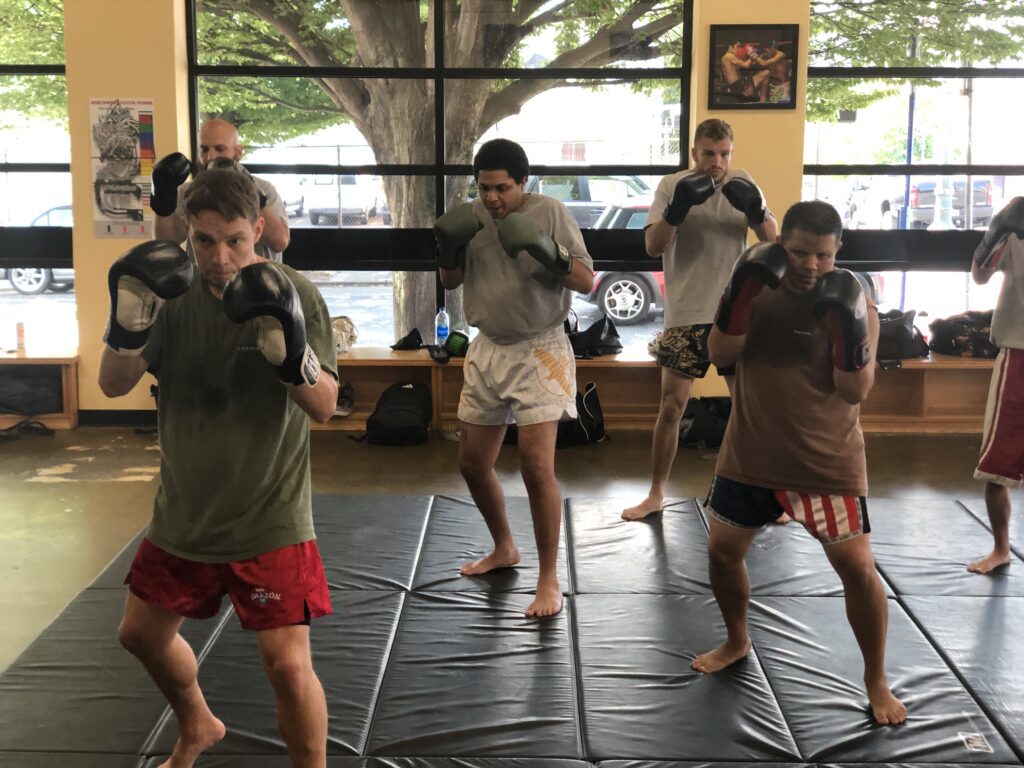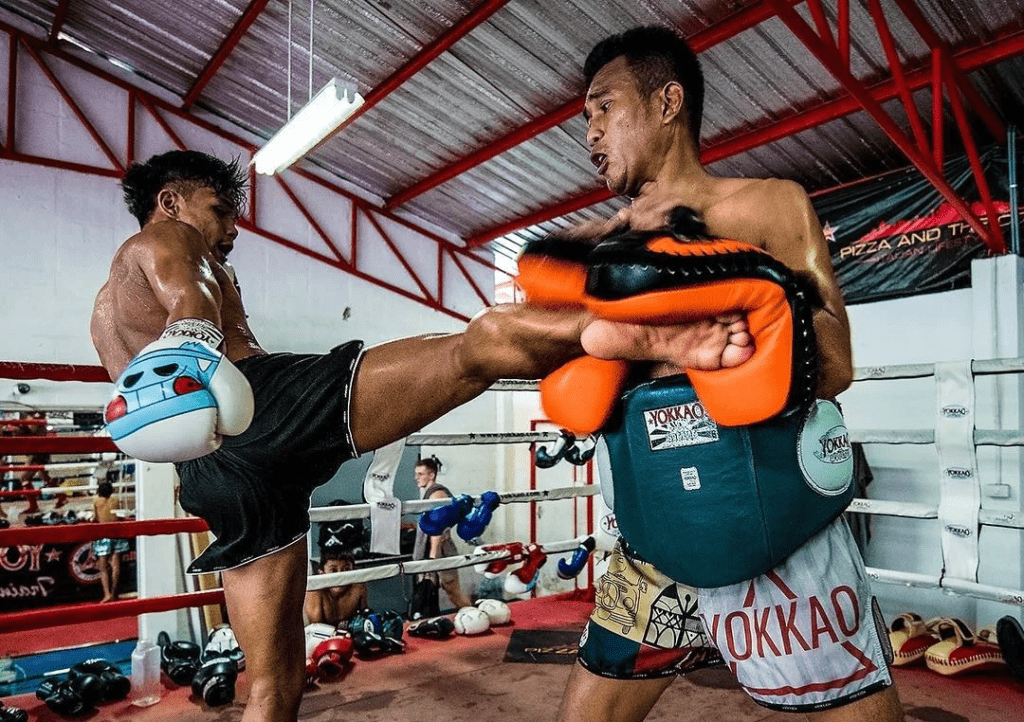An Essential Skill
Being a good partner in Muay Thai is crucial for both your development and your training partner’s growth. Muay Thai is a combat sport that requires discipline, hard work, and dedication to achieve proficiency.
Safety: Muay Thai can be dangerous if not practiced with care and attention. As a good partner, it is your responsibility to ensure that both you and your partner are safe during training. This means using proper technique, avoiding excessive force, and being aware of your surroundings.

Skill development: Training with a partner allows you to practice techniques, spar, and drill, which can help you develop your skills and improve your performance. A good partner is patient and supportive, allowing you to try new techniques and providing constructive feedback to help you improve.
Motivation: Training with a partner can be more motivating than training alone. A good partner will push you to work harder, challenge you to improve, and hold you accountable for your progress.
Camaraderie: Muay Thai is more than just a sport; it is a community. Being a good partner means being respectful, patient, and supportive of your fellow practitioners. This creates a positive training environment where everyone can learn and grow together.
The one core skill to develop as a good partner, is pad holding.
Muay Thai Pad Holding
Muay Thai pad holding is a crucial role for a training partner in Muay Thai. Pad holding involves using Thai pads to help your training partner develop their striking skills, speed, power, and precision. Being a good pad holder is essential for creating a safe and productive training environment. Here are some tips on how to be a good Muay Thai pad holder:
- Communicate clearly: Before the training session/drill begins, talk to your partner and agree on power, speed, intensity. Give feedback to each other and get comfortable the overall pace that your partner wants to set. Remember that it is ok to ask your partner to slow down, especially as a beginner to make sure you are doing it correctly. Your partner and yourself should also be aware of each other’s experience and training intensity. Accidents happen when there is lack of control!
- Keep the pads stable: If you are unsure how to hold for a specific technique, ask your coach if it is in a class setting. They will correct your form. Holding the pads for a Thai round kick for example, we keep the elbows tucked into the ribs, tips of pads touching each other to create a triangle where your body can tuck into. From there angle the pads up so you have proper body frame and pads can be reinforced into the body, rather than flying up and out of control.
- Move with your partner: Pad holding is not just standing still and holding the pads. You need to move with your partner, simulate different angles, and change the distance to create realistic scenarios.
- Stay engaged: Pay attention to your partner’s technique and provide feedback or corrections as needed. Technique or form, breathing correctly, judging distance and pacing are a few things to look out for. Stay engaged and maintain focus throughout the session.
- Be supportive: Encourage your partner and give them positive feedback. This will help them build confidence and make the training more enjoyable. Smile when you train!
Follow these tips to improve your pad holding skills, and help your partner improve as well. Remember, pad holding is not just about holding the pads, it’s about being an active partner in the training process.
Being a good partner in Muay Thai is essential for safety, skill development, motivation, and camaraderie. It requires respect, patience, and support, but also the ability to push each other to improve. By being a good training partner, you will not only improve your own skills but also help create a positive training environment for everyone.




